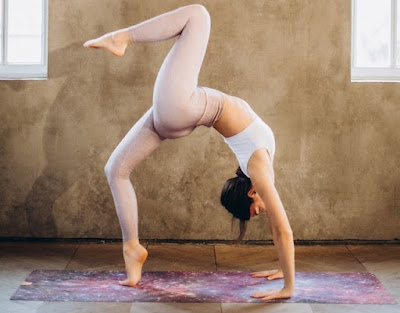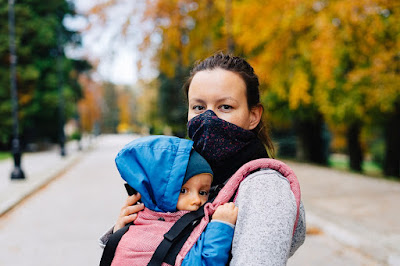There are three different types of exercises you need to get healthier, and each one is designed for a specific goal. According to an expert, following these exercises will help you reach your health goals.
No matter what your heart or circulatory condition,
exercising will have benefits for you. The more active you are, the better off
you'll be in terms of alleviating symptoms and extending life expectancy
Helen Alexander, a physiotherapist at Nuffield Health St
Bartholomew's Hospital specializing in cardiac rehabilitation, has advice on
the best types of exercise for various conditions. Depending on your condition
and current health status, you may need to modify your routine accordingly.
Aerobic exercise
What is aerobic exercise?
Regular aerobic exercise involves working your large muscle
groups with a level of intensity that makes you warm and out of breath. This
can include walking, cycling, or swimming; as well as everyday activities such
as cleaning the house, gardening, playing with children/grandchildren etc.
Benefits of aerobic exercise?
"Aerobic exercise can help improve your heart and
circulatory system, making it easier to carry out daily tasks without feeling
tired or short of breath," says Mrs. Alexander. "It may also lead to
improved emotional well-being and better sleep habits."
How does aerobic exercise help prevent cardiovascular disease?
Aerobic exercise also lowers your risk of heart and
circulatory diseases, and can help stop them getting worse by:
• lowering your resting blood pressure and heart rate;
•improving your cholesterol levels; and
• assisting you in maintaining a healthy weight, which
lowers your risk of developing type 2 diabetes.
How much aerobic exercise a week?
It is recommended that you engage in at least 150 minutes of
moderate-intensity aerobic exercise per week. "Moderate intensity"
means "warm and comfortably breathless," Mrs Alexander says. "If
you're new to exercise, start slowly and work your way up to 150 minutes. Begin
with five to ten minutes per day. Before doing anything else, pay attention to
how your body feels the next day."
Resistance training
What is resistance exercise?
Strength exercises, also known as resistance training, force
your muscles to work harder. "This could include lifting weights or using
resistance equipment like bands or cables. However, you can simply use your own
body weight. "Perhaps start by standing up from a chair, then progress to
squats or press-ups against the wall," Mrs Alexander suggests.
Why do resistance training?
"Strengthening our muscles means that your arms and
legs will work better, taking the strain off your heart," Mrs Alexander
explains. "The stronger your muscles, the easier it will be to do aerobic
exercises and daily tasks without becoming breathless and tired."
How often should I do resistance training?
Strength train two to three days per week, ideally spread
out over the week, with at least one day off in between. "Begin with an
exercise that you can repeat 10 to 12 times, with the last couple repetitions
becoming a little more difficult. "If you can, do two to three sets of
10-12 repetitions," Mrs Alexander suggests.
Mrs Alexander advises against holding your breath during
strength training because it can raise your blood pressure. "If you can't
breathe or talk normally while doing strength training, the load you're lifting
is probably too heavy."
Balance exercises and flexibility exercises
What is it?
Yoga, pilates, and tai chi are all exercises that can help
you improve your flexibility and balance. However, you do not need to devote
large amounts of time to practising flexibility and balance. Stretching and
balance exercises could be incorporated into your other workouts.
Because flexibility exercises are most effective when your
muscles are already warm, why not do some stretches after your aerobic
exercise? You could do a calf stretch after walking.
Balance exercises involve moving into a less stable position
and training our bodies to hold it. "It could be as simple as putting one
foot in front of the other," Mrs Alexander explains. "You could stand
on one leg while holding something to support you, such as a kitchen worktop,
and gradually try it without so much support."
What are the benefits ?
Flexibility exercises keep muscles from becoming overly
tight. This allows you to move more freely while avoiding pain or injury.
Balance exercises reduce your chances of falling.
How much to do ?
Balance and flexibility exercises should be done two to
three times per week. Gradually ease into a position where you feel a
"comfortable tightness," but the stretch should not be painful to
hold. Try to hold muscle stretches for at least 30 seconds (the time it takes
to slowly count to 30) - but don't hold your breath.




